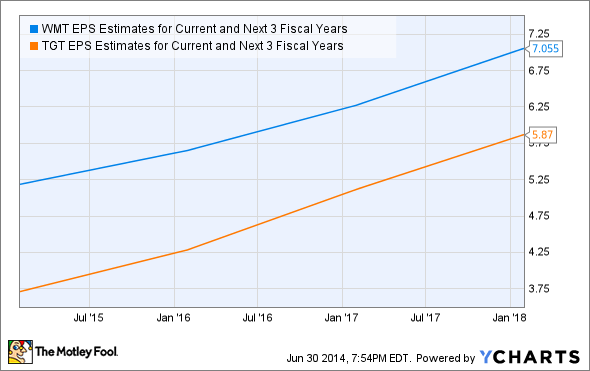Filed under: Investing
In our modern age of technology-driven lifestyles, speed is of the essence. We have speed dating, speed-reading, flash trading, and fast food. The idea "Fast is better than slow" is an inescapable principle of life - at least according to companies like .
But Warren Buffett, as you may know, isn't a man built for speed. So when the time comes for him to make big decisions, he turns to a methodical, tried-and-true approach. It's one that he enjoys and one that works. He laid it out in his annual letter to Berkshire shareholders in 1992:
Of all our activities at Berkshire, the most exhilarating for Charlie and me is the acquisition of a business with excellent economic characteristics and a management that we like, trust and admire. Such acquisitions are not easy to make but we look for them constantly. In the search, we adopt the same attitude one might find appropriate in looking for a spouse: It pays to be active, interested and open-minded, but it does not pay to be in a hurry.
From Buffett's point of view, there are some decisions you just can't rush. Buying a business is one of them. Finding a life partner is another. Ironically, these "exhilarating" activities are often the ones that tempt us to act irrationally. While Buffett learned this lesson the hard way, we can use the Oracle's wisdom to avoid falling into the same trap.

Buffett sticks to what he knows: Being folksy and old-school. Source: Flickr/thetaxhaven
Buffett makes a rookie mistake
Believe it or not, Buffett wasn't born with an uncanny ability to identify great companies. On the path to investing success, he stumbled quite frequently, especially early on in his career.
His first major acquisition, in fact, was also his worst. That was the purchase of none other than the textile firm Berkshire Hathaway , which would ultimately become the namesake of his legendary holding company.
In the 1960s, Berkshire Hathaway was a Massachusetts manufacturer involved in the lowly business of making fabrics. Buffett identified Berkshire as "cheap" initially, but he also quickly recognized that it was operating in a rapidly declining industry. Still, even as mills were being closed left and right, Buffett continued to acquire shares.
Why throw good money after bad? As Buffett would explain years later, he became infuriated when the CEO at the company offered to buy shares from him at a certain price, only to retreat and offer a lower value shortly thereafter. In an interview with CNBC, Buffett recounted the sequence of events as follows:
"[T]his made me mad. So I went out and started buying the stock. And I bought control of the company and fired [the CEO]."
End of story? Not quite.
Buffett went on to say, "I had now committed a major amount of money to a terrible business." In other words, the man whose career would be defined by his ability to keep his cool had just fallen prey to his own emotion-driven instincts.
Unfortunately, the textile operations went belly up and cost Buffett dearly. He estimated in 2010 that Berkshire would be worth 200 billion dollars more had he avoided the textile industry altogether. Talk about an extraordinarily expensive way to learn a lesson!
On the bright side, Buffett learned these crucial lessons early on and they would serve him well for the rest of his career. There were three valuable takeaways from his experience with Berkshire Hathaway:
1. First, investors should buy only those businesses with superior economics. Textiles, at the time, were quite inferior.
2. Secondly, seek out businesses with great leadership, not managers that you want to fire.
3. And finally, investors need to keep their emotions out of the picture. Don't latch onto a flash-in-the-pan stock. Instead, take a moment and get a second opinion. But never, ever, act impulsively when your net worth is at stake.
Less than a decade into investing, Buffett had already begun to realize that he needed a system to use in evaluating businesses, and these three tenets would be at the core of that system. They might not always lead him to brilliantly executed investments, but they would surely limit his losses in an event similar to the textile industry's downturn. He shared these lessons in the early 1990s so others could learn from his hard-earned wisdom.
You can learn (and profit) from Buffett's blunders
In this instance, Buffett's experience provides a tangible example of what not to do, and his quote reveals what long-term investors should be doing. But how can we apply those lessons on economics, leadership, and temperament to a given investment opportunity? Let's take a look at an industry that everyone can relate to: retail.
In today's cutthroat retail environment, household names like The Container Store and Williams & Sonoma are prime examples of businesses Buffett would admire. The former is founder-led, entirely devoted to helping customers get organized, and capable of exerting incredible pricing power relative to big box stores. Williams-Sonoma, meanwhile, has effectively carved out a profitable niche in high-quality cooking accessories, a business that's made the leap to e-commerce quite nicely in recent years.

Source: Flickr/Dave Dugdale and Chris Potter
Both companies possess leaders with a vision of where retail is headed in the future. And, quite frankly, they're in a polar opposite position than the textile industry was in the 1960s. Investors looking for attractive retail operators should give these niche players a second look.
But, before you run out and purchase shares, just remember to do your research. A complex decision with profound implications on your personal wealth need not be rushed. Not now, not ever.
As Leonardo da Vinci once said, "He who wishes to be rich in a day will be hanged in a year."
Not your folksy Buffett-esque quote, but, hey, it gets the point across: Take your time. Develop a system. We're in this for the long haul.
Warren Buffett: This new technology is a "real threat"
At the recent Berkshire Hathaway annual meeting, Warren Buffett admitted this emerging technology is threatening his biggest cash-cow. While Buffett shakes in his billionaire-boots, only a few investors are embracing this new market which experts say will be worth over $2 trillion. Find out how you can cash in on this technology before the crowd catches on, by jumping onto one company that could get you the biggest piece of the action. Click here to access a FREE investor alert on the company we're calling the "brains behind" the technology.
The article 3 of Warren Buffett's Best Insights in 1 Great Quote originally appeared on Fool.com.
Isaac Pino, CPA owns shares of The Container Store Group. The Motley Fool recommends Berkshire Hathaway, Google (A shares), Google (C shares), The Container Store Group, and Williams-Sonoma. The Motley Fool owns shares of Berkshire Hathaway, Google (A shares), Google (C shares), and The Container Store Group. Try any of our Foolish newsletter services free for 30 days. We Fools may not all hold the same opinions, but we all believe that considering a diverse range of insights makes us better investors. The Motley Fool has a disclosure policy.Copyright © 1995 - 2014 The Motley Fool, LLC. All rights reserved. The Motley Fool has a disclosure policy.
Read | Permalink | Email this | Linking Blogs | Comments

































